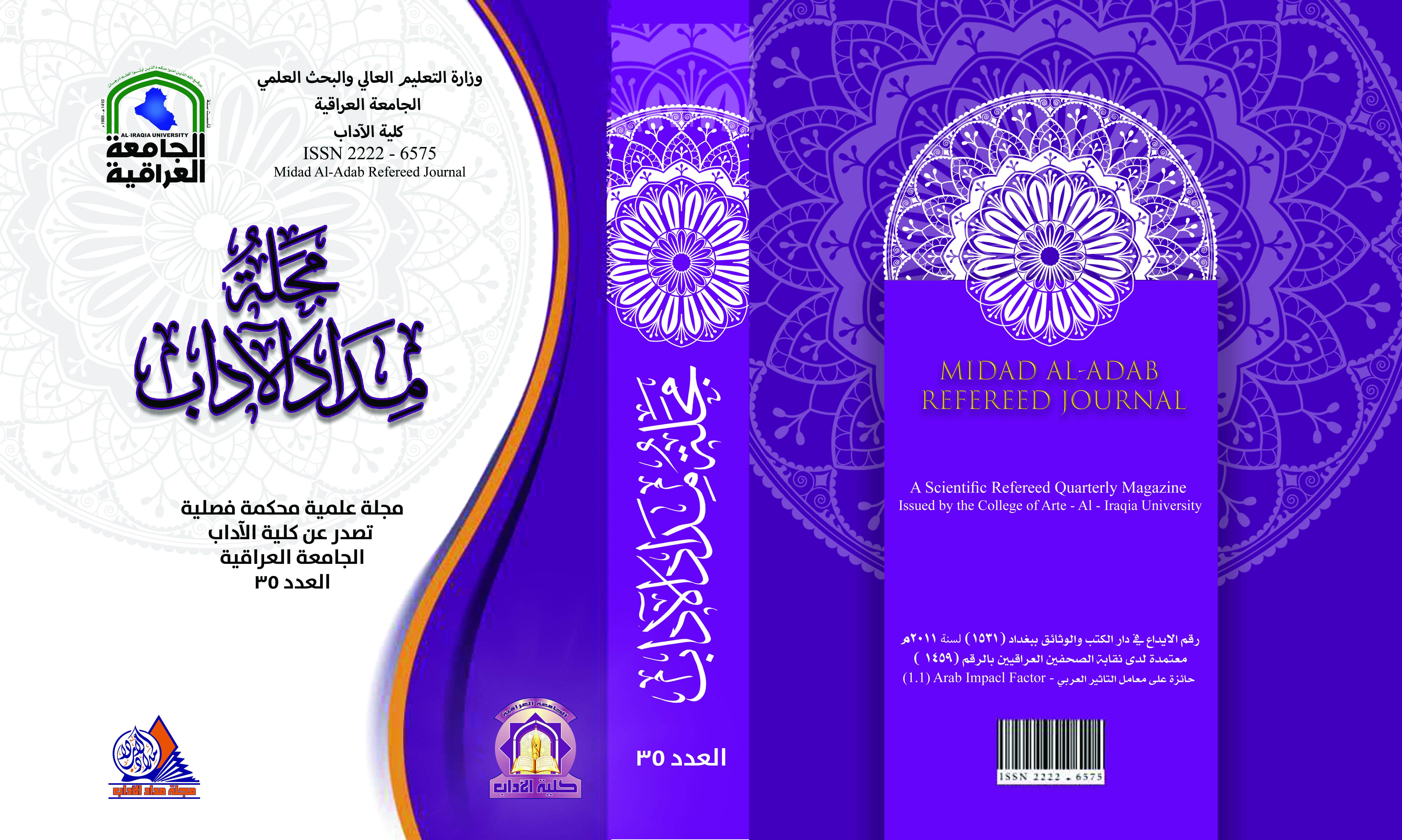The Effect of Qur’anic Contextual Evidence in Directing Lexical Meaning (Taj Al-Arous Dictionary by Al-Zubaidi as an Example)
The Effect of Qur’anic Contextual Evidence in Directing Lexical Meaning (Taj Al-Arous Dictionary by Al-Zubaidi as an Example)
DOI:
https://doi.org/10.58564/ma.v14i35.1341Keywords:
Keywords: Quranic evidence, Taj Al-Arous, Al-ZubaidiAbstract
The study In this research addressed what Is known as Qur’anic evidence and its Impact in directing meaning within dictionaries, and how scholars rely on Qur’anic evidence and evidence to guide their dictionaries and clarify meanings.
Light will also be shed on the meanings of the evidence In language and terminology, and the evidence In the Holy Qur’an and the Noble Prophet’s Sunnah, with a study of the sections of the evidence, after which we will move to the Qur’anic Influence that appeared In clarifying and directing the lexical significance by citing a group of noble Qur’anic verses, so we relied on the sayings of scholars. There are many trustworthy people, and we relied on their opinions regarding lexical meaning and Qur’anic evidence.
It was necessary to direct attention to the scholars of interpretation and their books becausee the research Is based on noble Qur’anic verses that we must Interpret in order to make It clear to the student what the study is and how to research. So the research was based on the analytical method that worked on analyzing the Qur’anic verses and analyzing the jurisprudential, fundamentalist, linguistic, and lexicographic opinions
Downloads
Published
Issue
Section
License

This work is licensed under a Creative Commons Attribution-NonCommercial-NoDerivatives 4.0 International License.








